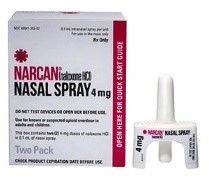Opioid Overdose Prevention
The number of people who died from a drug overdose in 2021 was over six times the number in 1999. The number of drug overdose deaths increased more than 16% from 2020 to 2021. Over 75% of the nearly 107,000 drug overdose deaths in 2021 involved an opioid.
What Are Opioids?
Opioids are “narcotic” drugs that relieve pain by decreasing the intensity of pain signals that reach the brain. They can also affect regions of the brain that control breathing and emotion. Opioids can be prescribed by doctors to treat pain and diarrhea, put people to sleep, and repress cough. Opioids include prescription medications such as oxycodone (OxyContin®), morphine, fentanyl, codeine, methadone, buprenorphine, and hydrocodone (Vicodin®). They also include illicit substances such as heroin and illicitly manufactured fentanyl and fentanyl analogs.
Opioids can come in various forms including capsules, tablets, powder, liquid, chunks in different colors, lollipops, and syrups. They can be used by sniffing, smoking, injecting, or swallowing/ingesting. Other forms include rectal suppositories and skin patches. Learn more by downloading the DEA’s Drugs of Abuse (PDF).
Opioid Overdose
An opioid overdose may occur when someone uses an illicit opioid, misuses a prescription opioid, uses an opioid or other drug that is contaminated with a more potent opioid (e.g., fentanyl), does not understand the directions for use, or takes the opioid as told but the prescriber miscalculated the dose of the opioid.
Facts about Opioid Overdose
- Overdosing on these drugs depresses the brain’s respiratory drive. Breathing slows excessively or stops. Death is caused by lack of oxygen.
- Anyone can save a life during an opioid overdose by learning how to administer Narcan (naloxone), a drug that reverses the effects of opioids and restores breathing. Narcan can be given through a nasal spray.
- To reduce the risk of death from opioid overdose, it is recommended by the FDA that the following people carrying naloxone:
- Individuals who take opioids and are at-risk for opioid overdose.
- Friends, family, and caregivers of individuals who take opioids.
- For more information, visit California Department of Public Health.
Opioid Overdose Prevention at Merced College
Merced College has resources available for students to learn how to recognize and prevent opioid overdose. Free opioid overdose medication, Narcan Nasal Spray, is available to the campus community to keep on hand if you or someone close to you is at risk for opioid overdose. In addition, Student Health Services offers free fentanyl test strips to enrolled students. Anyone who uses opioids, prescribed or not, can be at risk for opioid overdose.
How to Obtain Free Nasal Narcan on Campus
Contact Merced College Student Health Services at (209) 384-6045 and schedule an appointment. You will be required to watch the California Department of Public Health’s Administering Naloxone training video during your appointment.

Fentanyl Test Strips for Students
In 2024, a new law will require the governing board of each community college district to provide information about the use and location of fentanyl test strips as part of established campus orientations and to notify students of the presence and location of fentanyl test strips.
Students may obtain fentanyl test strips through SHS by contacting (209) 384-6045 to schedule an appointment for training.
Campus Opioid Safety Act
Merced College participates in the Naloxone Distribution Program through the California Department of Public Health and was issued a standing order in 2023. The standing order was issued by the state Public Health Officer (authorized by California Civil Code Section 1714.22) to:
- allow community organizations and other entities in California to distribute naloxone to a person at risk of an opioid-related overdose or to a family member, friend, or other person in a position to assist; and
- allow for the administration of naloxone by a family member, friend, or other person to a person
experiencing or reasonably suspected of experiencing an opioid overdose.
To learn more about the Campus Opioid Safety Act, click here.
California Good Samaritan Policy
Under California Health and Safety Code 11376.5, a person will not be charged with drug possession or use crimes if that person: acts in good faith, and seeks medical assistance/emergency medical services for another person experiencing a drug-related overdose. This law was designed to encourage a witness of a drug-related overdose to call 911 or seek emergency help in a timely manner to save the life of the overdose victim. For more information: Understanding California’s 911 Good Samaritan Law.
Additional Information
Aegis Treatment Centers, Merced
(209) 725-1060